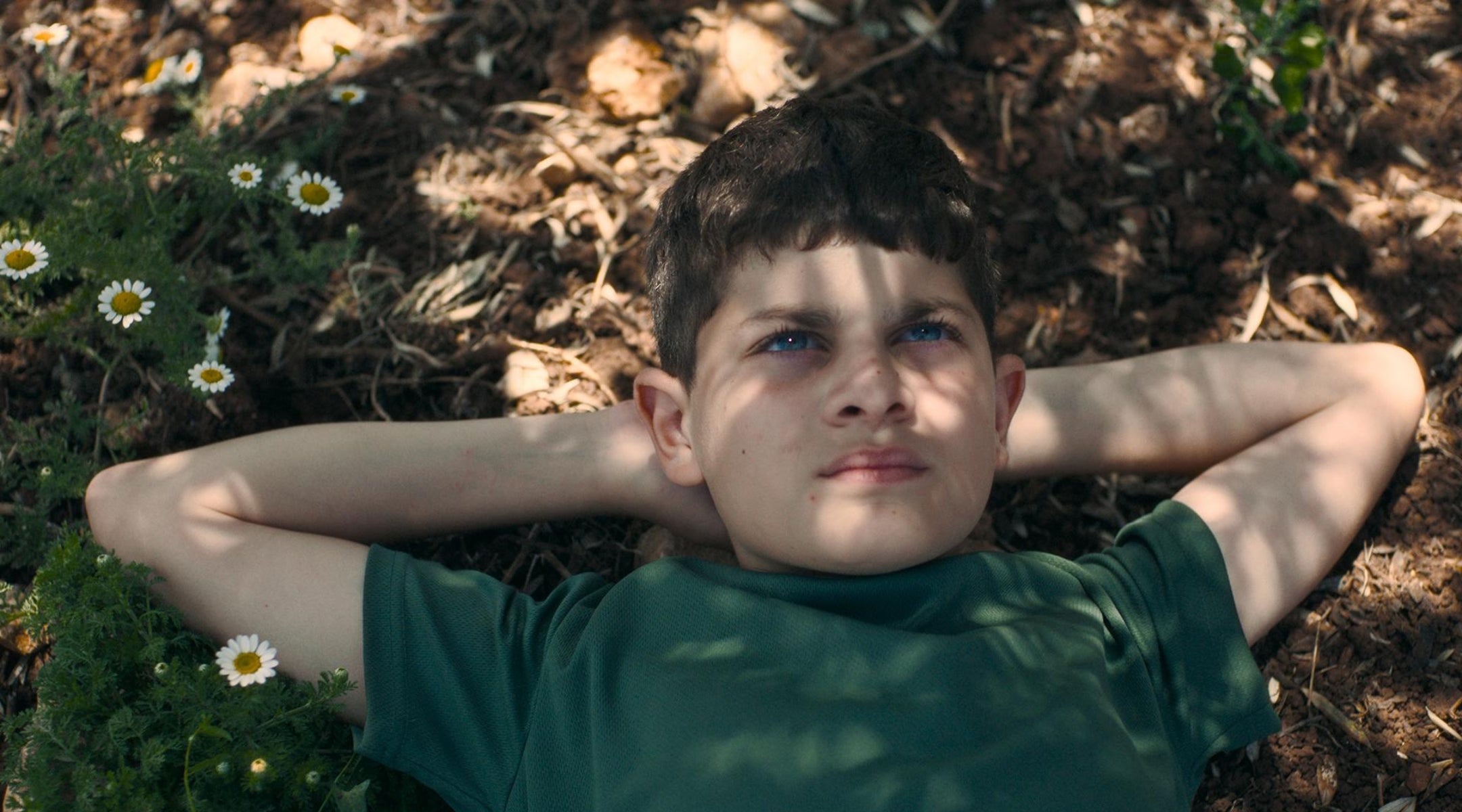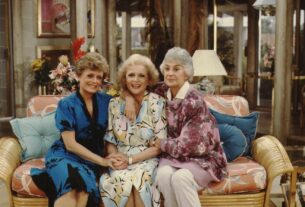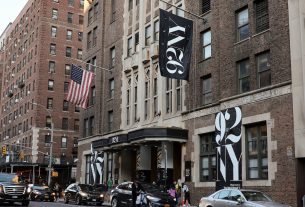Israeli film director Shai Carmeli-Pollak’s latest film, “The Sea,” is about a young Palestinian boy from the West Bank who is denied a permit to visit Tel Aviv with his classmates. Longing to see the Mediterranean, he courts danger as he sets out to make the journey on his own.
The Arabic-language drama was released in Israel in July; in September, it won five Ophir Awards — Israel’s version of the Oscars — including for best picture, which means “The Sea” is also Israel’s submission into the Academy Awards for best international feature film.
And now, “The Sea” is making its North American premiere on Thursday at the Marlene Meyerson JCC Manhattan (334 Amsterdam Ave.). The screening — which also includes a reception and a Q+A with director Carmeli-Pollak and Palestinian producer Baher Agbaria — kicks off this year’s Other Israel Film Festival, an annual event that spotlights untold stories from Israeli and Palestinian societies.
Filmed in the summer of 2023, “The Sea” is partially inspired by true events: Carmeli-Pollak visited the West Bank for the first time in the early 2000s, during the Second Intifada.
“Seeing what’s going on really influenced me,” Carmeli-Pollak, 57, said, describing how a border wall between the West Bank and Israel, begun in 2002, restricted Palestinian travel into Israel. “And I started to go more and more and more and became an activist.”
Carmeli-Pollak became an activist alongside groups like Anarchists Against the Wall, a group advocating against the concrete security wall between Israel and the West Bank. His experiences informed the 2006 documentary, “Bilin, My Love,” about a Palestinian village set for demolition by the Israeli government.
No one particular moment or event inspired “The Sea,” Carmeli-Pollak said. Rather, the director said it was the West Bank residents’ longing for the sea — something Carmeli-Pollak said he frequently heard — as well as their desperate need for employment, that informed the film. ”it was a long period that I met people, and they spoke about this,” he said.
Since its release, “The Sea” has been ensnared in political crosshairs: It was produced with financial support from the Israel Film Fund, a public fund that was described as an institution “implicated in genocide and apartheid against the Palestinian people” by a growing boycott against the Israeli film industry signed by more than 1,200 prominent Hollywood stars.
On the other end of the political spectrum, Israeli Culture and Sports Minister Miki Zohar, a Likud Party member, has called for the defunding of the Israeli Academy of Film and Television, which runs the Ophir Awards. Zohar, who has only seen “the most important parts of the movie.” claims the film portrays the Israeli military in a negative light.
“It is probably the hottest Israeli film of the year,” Isaac Zablocki, the executive director of the Other Israel Film Festival and the JCC’s senior director of film programs, said of the festival’s sold-out screening of “The Sea.”
“Since all this noise with the boycott of Israeli films — and on the other side, the Israeli government declaring its lack of support for this film specifically, and Israeli cinema in general — it’s felt even more important for us to highlight this film as much as possible and really give it as much support,” Zablocki added. “I think this movie, right now, is exactly what Israel needs.”
The New York Jewish Week spoke with Carmeli-Pollak just days before the film’s North American premiere. Keep scrolling for our conversation.
This interview has been lightly condensed and edited for clarity.
Was the idea always to tell this story from a Palestinian perspective?
The idea from the very beginning was to tell the story from the point of view of a Palestinian child. That perspective allows us to strip away the almost automatic “political” baggage that comes with an adult’s point of view.
A child’s perspective is free from all that complexity. In that sense, for me the film is not necessarily just a Palestinian story, but rather a story about two societies living on opposite sides of the wall — the Palestinian and the Israeli.
We have an opportunity to see Israeli society through the eyes of this child, and perhaps to look again at things that are usually invisible or taken for granted.
How did you find the cast and crew?
The cast is a mix of professional actors and non-actors. Naturally, the boy, Muhammad Gazawi, was not a professional actor. I met him when I visited a Thai boxing club in a Palestinian city inside Israel called Qalansawe. I met there a group of tough young athletes, and he quickly struck me as a boy with remarkable acting abilities.
You said the rough cut of the film was already completed by Oct. 7, 2023. Can you tell me more about what the cross-cultural collaboration looked like at the time?
We shot the film in the summer of 2023. Apart from the fact that the producer is Palestinian, the crew was mixed — Palestinians and Israelis.
On set you could hear both Hebrew and Arabic blending together naturally. The crew made the same journey shown in the film — moving between Palestinian villages, where we received a warm welcome and generous hospitality, and cities inside Israel. Even before Oct. 7, it wasn’t common to see a joint production like this, and it was a special experience for everyone involved. For many of the Israeli crew members, it was their first time being hosted in a Palestinian village. After the war broke out, Baher and I were deeply worried and heartbroken — first and foremost for the people we care about, but also for the film.
We thought no one would want to watch such a small story when horrific events were happening all around. And indeed, at first we faced difficulties in distributing the film. But as time went by, it seems that openness to a story like this is slowly returning, and we hope the film will reach as wide an audience as possible.
What was that partnership like in the wake of Oct. 7?
I was in contact all the time with Baher, the producer. He’s Palestinian, and we were both horrified by what’s going on — by the 7th of October, and with the reaction in Gaza, which was terrible. We were really, really worried. But we also felt like maybe nobody would want to watch the film now. I spoke to the actors, like Khalifa Natour [who plays Ribhi, Khaled’s father], who were devastated with what’s going on. But our communication was just the same — as friends, as people that are in the same circle. It’s not that now, suddenly, I’m from one side, and he is from the other side. It felt like we’re still connected.
At the end of the film, when Khaled and Ribhi are being arrested by the police, there’s a shot where the Israelis at the café kind of pause for a moment; they look shocked or horrified, and then they go back to their coffee. What were you trying to say about Israeli society and their attitudes toward police or military violence against Palestinians?
I tried to make this film not just to speak about Israeli society, but about human beings, to make it more universal in a way. I was really, really inspired by “Bicycle Thieves,” the Italian film by Vittorio De Sica from the 1940s. It tells the story of a father and son, also. And I was so emotional by this film, 80 years after it was made. I felt that I wanted to make a film that people can watch years from now, and still get the story.
So the idea was about human beings and the way that people are behaving, of course, in political arrangements, because everything is politics. I don’t think people in other countries would behave differently in this kind of system that exists here.
People just live their lives. They sit in a café, they see this scene, and then, like the viewers in the cinema, they go back to their lives after they sit.
In a way, I think generally, what I was trying to say is that people are not evil. They’re not looking to hurt other people, but because the system is very, very corrupt and discriminative and injustice unjustified, this is what caused all the problems.
The Israeli Culture Ministry, led by Miki Zohar, wants to defund the Ophir Awards, which had granted you many awards for this film. Is there any update on that?
He did establish his own competition and to offer a lot of money for each prize. So he is using public money for his agenda, which is not surprising. This is the way this populist fascist government is working. And besides this, I don’t know anything new.
I would prefer to live in a place where the minister of culture supports films and supports the freedom of speech and doesn’t try to block it. But when the situation is like this, at least, he saved me from — now that the film goes out to the world — having to explain that I’m not representing this government.
What do you hope that New York viewers — especially Jewish viewers who may be unfamiliar with Palestinian life in the West Bank, or their interactions with Israelis — will get out of your film?
I don’t know if I’m telling something new to people, but maybe so. I guess liberals know there is discrimination against people that live under the occupation. But it’s not an article; it’s different when you read about it and when you experience it more in a more emotional way.
So maybe the idea is that the film can give you another aspect of this — to actually have some feelings about the story of this kid, and to maybe open these channels of understanding, and know that what’s going on here can’t go on like it used to be before. We can’t go back to the same point as before the war. There should be a deep change, and we need the support from the outside for this change. That’s for sure. There are a lot of forces inside Israel and forces in the United States that are against these kinds of changes.
Jewish stories matter, and so does your support.




